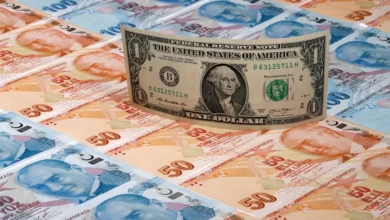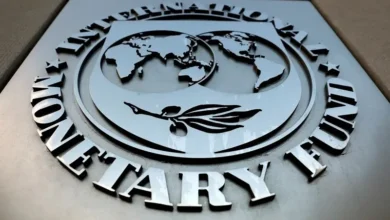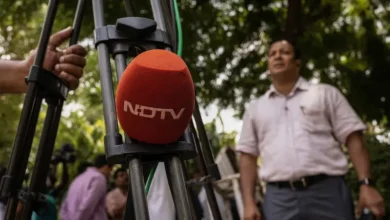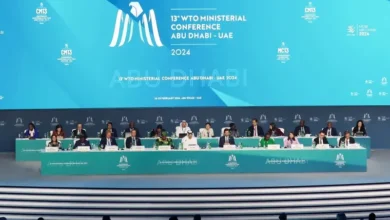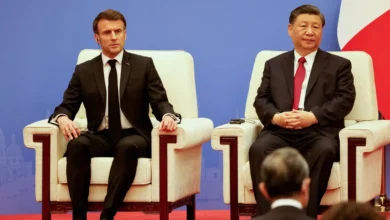Non-oil focus fuels optimism for Saudi, UAE startups, investors amid global slump
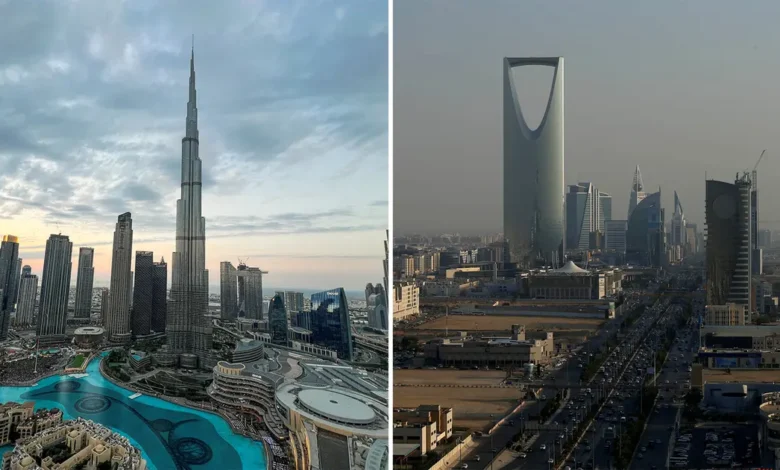
Startups in the UAE and Saudi Arabia are weathering the effects of a global economic downturn and adapting to the changing needs of consumers,said experts, investors and small businesses.
The global economic slowdown has impacted funding in many geographies, leading to a drop in valuations, Deepak Ahuja, CEO and Co-Founder of iAccel Gulf Business Incubator, told Al Arabiya English.
Having said that, the UAE and Saudi Arabia are at “different stages of their journey and this situation can be played to their advantage, as there are more startups seeking investors now, compared to two years back,” he added.
Israel’s Tel Aviv retains the crown as the startups-city in the Middle East. It has held the seventh spot globally since 2020 and moved up to fifth in the Global Startup Ecosystem Report (GSER), June 2023. Dubai, meanwhile, moved up three places, while Riyadh climbed from the 91-100 range to the 51-60 range.
The global city ranking is done based on a mix of weightage to the following factors: 30 percent for performance, 25 percent for funding, 15 percent for market research, five percent for connectedness, 20 percent for talent and experience, and five percent for knowledge.
Looking at the top-five startup ecosystems in the MENA region, Dubai takes second place, Cairo comes in third and Riyadh takes the fourth spot, according to the GSER report published by Startup Genome, a policy advisory and research organization.
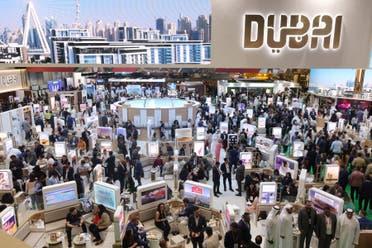
The GSER report found that in the US and EU, due to rising interest rates, investors’ risk appetite has “shrunk dramatically”, resulting in restrictive or no funding for many startups. North America saw a 26 percent decline in early-stage funding and an overall decline in unicorns and exits.
The GSER report defines ‘exit’ as “an event in which the founders, investors or employees of a startup realize a return on their investment by selling their ownership stake in the company”. Exits include initial public offerings (IPOs), mergers and acquisitions (M&A), buyouts and reverse mergers. The same report defined a unicorn as a startup that has been valued at more than $1 billion and has not exited.
But countries in the GCC are bucking the international trend, with start-ups thriving — thanks, in large part, to government support and a strong ecosystem to stand by new businesses, said Ahuja.
“The UAE government … has built a regulatory framework to make the [startup] ecosystem conducive for founders,” he said. “Multiple government-sponsored accelerator programs, incubators in universities, and corporate innovation programs have been designed and built to support founders with great ideas.”
“All of this has made the region a prime focus for startups and founders,” he added.
One such program is iAccel, part of the Hamdan Innovation Incubator, a government-backed initiative that aids entrepreneurs in developing a business, helping them attain tangible growth and expediting projects with local and federal authorities.
Dubai SME is another Dubai government initiative established in 2002 to offer support, information and outreach to small and medium enterprises. It runs various programs such as Dubai Next, where entrepreneurs can crowdfund, Zstartup, which is an incubator and accelerator focused on health-care technology, augmented and virtual reality, digital media utilized in healthcare, and HiDubai, an online repository that supports local businesses.
These initiatives are led by the Dubai government-run Department of Economic Development.
In many of these programs, UAE nationals are given priority, as the oil-rich Gulf state seeks to promote Emirati entrepreneurship and private sector work through incentives and mandatory local hiring requirements under Emiratization rules for businesses.

Some incentives for UAE nationals include a $1 billion graduate fund that will go towards microloans to final-year university students and fresh graduates to support them in exploring new business start-ups, and a year-long paid leave for government employees to start their own business, among others.
The government also offers Emiratis a salary support scheme of up to $2,100 (AED 8,000) per month when taking up employment in private sector firms and also offer financial rewards to companies where UAE nationals are trained upon hiring to build vocational training in private and semi-private establishments.
“Today, both UAE and Saudi Arabia are prime markets for startups that want to establish their presence in the Middle East,” Ahuja said.
On Saudi Arabia, he added that the Kingdom has “fast-tracked” its startup journey since Crown Prince Mohammed bin Salman came to power and established the Vision 2030 plan.
Ahuja cited Saudi Arabia’s enormous domestic market size, which is home to 35 million residents and bigger than all its GCC neighbors combined. He said the Saudi market is “definitely a home-based friendly market and not just expansion-friendly.”
The GSER study found that MENA was the least affected region in terms of exits, retaining 84 percent of its 2021 value, while Latin America was the worst affected with exits in 2022 valued at seven percent of its 2021 amount.
Europe, the US and the wider North American region were most affected in terms of total number of deals reached, while MENA saw a three percent increase, according to the GSER report.
Saudi Arabia led the total startup funding in the region with investments of $446 million in the first half of 2023, followed by Egypt at $305 million and UAE in third place at $239 million, according to a study by data platform Magnitt, sponsored by the government-backed Saudi Venture Capital (SVC) company. VC firms, including 500 MENA, Shorooq Partners and Flat6Labs were among the top investors.
The Magnitt study, however, recorded a drop in funding and deals — a decrease in the number of investors taking percentage ownership of a startup in exchange for infusing funds — across the region, in line with the global downturn. The top five industries saw a near 50 percent decline in deal flow, when compared to year-on-year changes, in the first half of 2023.
Yet, despite the dip, early-stage investments shone, further anchored by regional government-linked efforts to maintain and grow the ecosystem. In January 2023, the Dubai government had announced ‘The Dubai Economic Agenda D33’, which includes the launch of a scaling-up program for 30 companies to become global unicorns, developing 400 SMEs, increasing foreign direct investments and private sector investments, among other objectives.
Similarly, in Saudi Arabia, the SVC invested $30 million in Shorooq Partner’s recently-launched $150 million Bedaya Fund II and another $80 million in a fintech fund launched in March 2023.

The MENA region experienced a 96 percent rise in early-stage funding, a 28 percent growth in the total number of deals made during the Series B round, and a 113 percent increase in the same series B round in terms of deal amount, according to findings in the GSER report.
Startups go through a few rounds of funding – Series A, B and C – where investors can supply funds in exchange for equity or partial ownership.
Within the region, while the UAE dropped two spots in terms of total funding, it took the lead for the most deals at 60, followed by Saudi Arabia at 54, according to the Magnitt study which reviewed data for H1 2023.
E-commerce took a majority share of this funding, followed by enterprise software, health care and fintech.
“In other words, there has been a shift in emphasis towards becoming more of an operating business rather than just aspirational. Of course, you can pursue both at the same time!” said Tariq bin Hendi, Senior Partner at Global Ventures.
“The economic situation has forced startups to rebase on the real metrics that will keep their business alive. Previously, it was about top-line growth. Now, it is about profitability, recurring income, cash and having a strong chief financial officer (CFO),” he added.
“MENA is a gateway not only to its own fast-growing markets, but also other countries and continents,” the senior partner said, adding that its transport infrastructure helps with cross-pollination of ideas and movement of people.

Global Ventures, based in the UAE financial capital of Dubai, was founded in 2018 as a vehicle to invest in emerging markets. The firm has achieved successful exits of five portfolio companies — Tribal Credit, Mumzworld, Kitopi, Lean Technologies and MUNCH:ON.
Kitopi joined the likes of Careem and Swvl in achieving unicorn status after the Dubai-headquartered cloud-kitchen business raised $415 million in a Series C round.
Global Ventures told Al Arabiya English that it too “saw the GCC as a launchpad for the wider MENA region.”
Since its launch, the firm said that 30 percent of the companies in its portfolio have expanded globally, including in Europe and the US. Global Ventures threw up examples such as RedSea and Arrow Labs, which “show MENA startups can compete and win on a global scale.”
Despite the potential to expand globally and regionally, Bin Hendi, in a note of caution, said that it’s “crucial to dispel a common misconception.”
“Relocating from one MENA country to another, such as Egypt to the UAE, does not guarantee a seamless transition. They are quite different markets and business landscapes, despite sharing a similar language. Entrepreneurs must recognize that each market within the region presents unique challenges and opportunities,” he explained.
Nevertheless, by navigating MENA’s diverse markets, entrepreneurs can gain valuable experience in operating within the varying regulatory frameworks and market conditions, he said. “If a startup, often with a tech stack as the driver, can successfully grow in MENA, it is well prepared for success across the rest of the world,” he said.
A ‘tech stack’ refers to the bundle of technologies and tools that a business uses to make, send and better its digital offerings.
Smooth Sailing
Hannan Moti, who co-founded iCodejr, an online coding academy for children, said the process to set up shop in Dubai was straightforward. He referred to the ease of set-up in the emirate as “second to none.”
It took Moti three to four weeks, including the visa process, to establish his company in 2021. Moti, born and schooled in the UAE, has also operated cloud kitchens in India.
Moti said he faced no difficulties in the set-up phase and called the UAE “extremely startup friendly”, especially since “STEM [science, technology, engineering and mathematics] is a key agenda for the leaders of the country”.
iCodejr has enrolled “thousands of students” since 2021, partnered with corporates and has raised $30,000 from angel investors.
When asked about the global economic trend and a possible effect on the startup, Moti said “education is recession proof.” Even then, he is taking steps to counter a possible drop in business by increasing business-to-business (B2B) relationships.
“While there may be a nominal reduction in voluntary programs, we’re fortifying our B2B with schools to ensure STEM remains a priority for parents,” Moti told Al Arabiya English.
The startup plans to expand into Saudi Arabia. “It is a key market for us. We’ve already invested in hiring in the market and are in talks with several institutions there for potential collaboration for B2B,” Moti added.
Moti and his team are also “trying to gain the interest of UAE nationals” for the courses that iCodejr offers, where they believe “there is more room to grow”.
Support and Capital
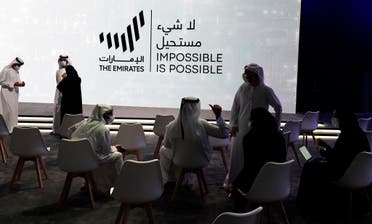
Crediting a “dynamic” market, access to capital and “supportive” government initiatives, Partner Dr Jonathan Doerr at Antler told Al Arabiya English that “the region boasts a thriving ecosystem, fueled by exceptional talent emerging from successful ventures, as well as a young and growing population.”
In both instances, experts and studies alike credit state-backed initiatives as incentives to establish a startup.
Doerr was previously the co-CEO of South Asia’s largest e-commerce platform, Daraz, which was acquired by Alibaba in 2018, and the founder of Smileneo, a health-tech company operating in MENA that was acquired by makeO in 2023.
“The MENAP region [Middle East, North Africa, and Pakistan] has become a hub for startups, driven by factors such as a large and young population, increasing internet penetration, evolving consumer behaviors and government support for innovation,” Doerr told Al Arabiya English.
Antler announced the launch of a $60 million fund on July 14 as part of its expansion into the wider Middle East, North Africa and Pakistan.
The firm, which has more than 850 investments and a presence in over 20 countries, is one of many large global angel and seed investors who have recognized an opportunity in the region owing to an institutional shift from a traditional oil economy to a non-oil-based one.
“As an entrepreneur that has built businesses in Saudi and the UAE, I would have highly valued a program like Antler that not only puts me in a room of 60 plus potential co-founders but also supports me tangibly on my first steps and introduces me to relevant people within the ecosystem,” Doerr said.
Antler will run its six-month program, guiding startups from the stage of team formation and ideation and through to the growth and fundraising process, in Dubai and Riyadh.
“Saudi Arabia has been actively fostering its startup ecosystem in recent years. The country has undertaken ambitious economic reforms as part of its Vision 2030 initiative, aiming to diversify its economy and promoting entrepreneurship,” Doerr added.
“The unique aspect of Saudi Arabia’s ecosystem lies in its large domestic market, strong government backing, which supports startups and attracts international investors,” Doerr further said.
He mentioned initiatives like MISA’s Entrepreneur License, which simplifies the process for founders and assists entrepreneurs since it requires minimal paperwork, allows full access to the Saudi market without a sponsor and remains an attractive investment opportunity for foreign investors. The license, overseen by the Saudi Ministry of Investment, allows full foreign ownership of a business in the Kingdom.
One of the founding principles of the Kingdom’s Vision 2030 plan is a “thriving economy” under which, the Gulf state hopes to support SMEs by providing over $695 million in indirect lending initiatives to over 2,000 beneficiaries.
Chrissi Zamora, the Healy Consultants CEO for Europe and Middle East, told Al Arabiya English that Saudi Arabia’s startup culture is booming, thanks to government initiatives.
“The rise of young entrepreneurs in Saudi Arabia reflects the transformative power of Vision 2030, creating opportunities and empowering youth to contribute to their nation’s progress actively. Among its many newly-introduced initiatives, the Kingdom’s ‘Meras’ program, which provides all that an entrepreneur needs to set up a business in one day, fuels entrepreneurship and the SME sector,” Zamora said.
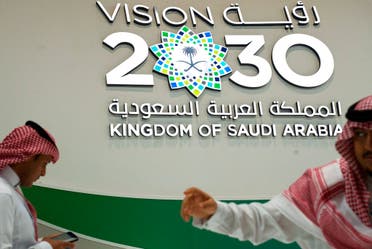
“Its emergence as a startup nation is a testament to the Kingdom’s commitment to economic diversification and fostering innovation, thereby paving the way for sustainable growth and global competitiveness. The entrepreneurial spirit of Saudi Arabia’s youth is driving economic growth and inspiring new ways of thinking, problem-solving and collaboration, thereby ultimately elevating the nation’s position on the global stage,” he further explained.
“As Saudi Arabia’s startup ecosystem continues to flourish, it showcases the Kingdom’s commitment to knowledge-based industries, ensuring a brighter and more prosperous future for the region and its people,” Zamora added.
As for the UAE, “Dubai and Abu Dhabi offer a favorable business environment, investor-friendly policies and world-class infrastructure. It serves as a regional hub for technology and innovation, attracting startups from various industries,” Doerr, from Antler, said.
“The unique aspect of the UAE’s ecosystem lies in its diverse and multicultural environment and strong government support for entrepreneurship and innovation,” Doerr added.
The UAE, like neighboring Saudi Arabia, offers incentives for startups, one of which is a $100 million venture capital fund launched by Sheikh Hamdan bin Rashid al-Maktoum, Crown Prince of Dubai and Chairman of the Executive Council, in 2022. The fund is currently active and will run for seven more years.
It has also made entry into and residency in the country more easily accessible with investment-linked visas and golden visas with a 10 or five-year validity for investors and entrepreneurs. And for decades, while the UAE did not impose taxes on businesses, it has begun levying a comparatively minimal nine percent corporate tax on profits over AED 375,000.
Along with this, the stability that the UAE and the wider Gulf region offers to talent is unmatched, Bin Hendi from Global Ventures said. “We are benefiting massively from the push among regional governments for entrepreneurship and the large pool of international talent. Lots of people are moving to the MENA region because of its stability and many educated people are moving here for longer stints than previously,” he added.
“This is vital for creating a great ecosystem for entrepreneurs and industries such as banking. It is about attracting the best people and inspiring them to stay for longer,” he added.
Bin Hendi credited the leadership’s attitude and approach to the ecosystem’s successes. He had most recently served as the Chief Investment Officer at the Abu Dhabi-based artificial intelligence company G42. Before G42, he was the Director General of the Abu Dhabi Investment Office, tasked with expanding private sector activity in the emirate.
“A notable element is the prevailing ‘can do’ mentality among the region’s leadership. Many countries have unfortunately lost this mindset, but in the Gulf, it remains strong. Also, there is a sizable youth population coupled with high spending power … This combination is relatively unmatched on a global scale,” Bin Hendi further explained.
The ESG Pillar
Global Ventures, an investor in Saudi Arabia’s sustainable farming endeavor RedSea, said more startups recognize the value and importance of having an environmental, social and governance (ESG) focused investor.
Medea Nocentini, Senior Partner at Global Ventures and the founder of C3 – Companies Creating Change, told Al Arabiya English that a “massive opportunity” exists in this space.
“Startups are looking for support from their investors on how to implement ESG,” Nocentini said. At least 64 percent of those surveyed by the World Economic Forum (WEF) in 2022 indicated that sustainability expertise is a factor they consider when choosing investors.
“The push for sustainability in startups has gained traction, driven by increased focus from limited partners, investors and regulators. It represents a great combination of bottom-up initiatives and top-down directives, elevating the focus on sustainability within the startup ecosystem,” Nocentini, who has a wealth of experience in this arena, said.
More consumers are choosing goods with a sustainability criteria, with “environmental, social and governance (ESG) factors now a permanent feature of consumer choices”, the Global Consumer Insights Survey 2023, commissioned by PricewaterhouseCoopers (PwC) and released in May 2023, found.
“Businesses are becoming more purpose-driven in their approach to markets, driven by investor movements prioritizing environmental, social and governance (ESG) investing as well as by public pressure,” a World Economic Forum report published in January 2023 said.
“This twin trend has the potential to underpin a new era of public-private convergence on addressing the most important problems facing humanity, with governments taking more initiative on market cocreation and businesses taking more responsibility for orienting their products and services towards social and environmental outcome,” it added.
When asked whether the sustainability push is merely to match consumer requirements, Nocentini said: “The push for sustainability in the startup ecosystem is far from a mere ‘tick-the-box’ exercise.”
“Unlike industries where regulators enforce minimum ESG requirements, the startup space does not face extensive regulatory oversight. Rather, they recognize it as good business practice. Entrepreneurs and founders, especially amongst the younger generation, prioritize ESG because they care about it, and also recognize it as a sensible form of risk management.”
Recognizing that including an environmental aspect may become an additional task for a startup, Nocentini said: “Startups face certain challenges when planning environmental goals, but many are already doing well in aligning their actions with their business objectives. For example, companies such as Max, RedSea, and others have businesses directly addressing environmental challenges.”
In December 2022, Al Arabiya English heard from the chief scientist at agriculture science and technology company RedSea, Mark Tester, who is leading a team in Jeddah pioneering ways to sustainably grow and harvest produce under harsh conditions in the Middle East.

“The environment cannot be an afterthought,” Nocentini said. “That said, startups have many distractions and things to manage. Tracking carbon emissions and minimizing footprints may require time, but there is generally a willingness to address these issues.”
“Startups often begin by setting targets related to their size and other factors before incorporating ESG and environmental elements. Given that most startups are asset-light, their environmental footprints may not be substantial. But there is still more to do.”
With the UAE set to host the UN climate conference COP28, and Egypt playing host to COP27, a larger population in the region is becoming aware of the effects a non-sustainable way of life can bring.
“The increasing sensitivity towards environmental issues – evident from events such as COP in Egypt and the UAE – suggests markets are becoming more attuned to environmental concerns. Over time, incorporating environmental goals becomes part of normal business practices,” the ESG expert added.
“From a technical standpoint, having an ESG policy in place is crucial. This policy should encompass the specific goals, commitments, and actions the startup intends to undertake to address ESG considerations.”
Advising startups, Nocentini said that a sound ESG plan starts with considering the probable and material risks, followed with a suitable policy to avoid, mitigate, or compensate for incursions, and importantly, to prioritize at most three to five critical risks rather than addressing a lengthy list of 20.

